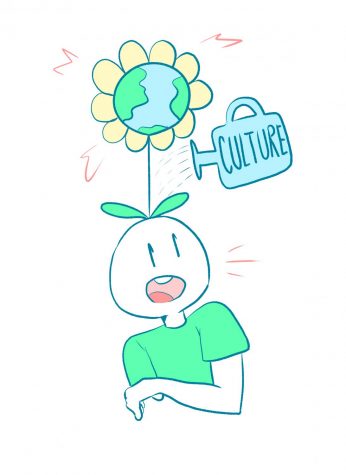On Your Professor’s Mind: Travel, be the outsider, welcome differences
November 19, 2019

Editor’s Note: This piece is the first in a new guest column series titled “On Your Professor’s Mind” where Columbia College Chicago professors write about any topic on their mind. If you would like to write as part of this series, email chronicle@colum.edu with On Your Professor’s Mind in the subject line.
They say travel broadens the mind. As a United Kingdom citizen who has now lived as a permanent resident of the United States for 17 years, I can attest to the truth of that saying—though I have some satirical friends who might say: “Mind? What mind?”
By accident or on purpose, I have also lived for periods of six months to five years in Germany as my army parents were stationed there, Spain for postgraduate study, France for my first job out of college and Holland for a long-term relationship with a Dutch person. Oh, and England, of course, though perhaps that doesn’t count. I’ve also taught classes for the Columbia College Study Abroad programs that have taken me to Prague in the Czech Republic, Florence in Italy and Bath in the United Kingdom, which led to side trips to a host of other European countries.
From all this travel, what lessons did I learn, and how exactly did it broaden my outlook? Here are some key take-aways:
● Living abroad can be hard. My first solo trips outside the U.K. were full of difficulties with the language, lack of money and a general youthful gullibility that got me into scrapes an older or more experienced person would have avoided.
● Thankfully nothing too bad happened to me, so I grew up a little bit and gained more confidence in handling new situations. That can also be obtained by just moving to another city in the same country or just attending college for the first time, of course.
● But living surrounded by a different culture and being forced to speak another language truly brought me into contact with people from a totally different background and made me learn to be tolerant and respectful of human differences.
● As I was always the foreigner, even after making Spanish or French friends, I learned in a small way what it was like to live as a member of a minority group, something that is usually denied to me by the fact that I could otherwise be considered as the classic privileged white male.
● Most of all, I’ve come to believe that there is no such thing as “the best country in the world” or “the best civilization.” Exposure to other cultures made me realize that there was nothing unique about my own country or background and that every country has its own fascinating way of developing a life and a culture on this earth.
The sort of travel I’m talking about here is only one way of many. Apart from when I was a child, all my travel outside the country where I was born was undertaken by choice, and mostly for enjoyment. Most of the travel between countries currently undertaken across the world is due to people escaping war and violence or looking for work. And in response to that, instead of extending a helping hand to such people on the move, many countries—and not only the United States—have decided to close borders and restrict certain kinds of travel.
This is why, for those who have the choice, we should acknowledge the privilege that comes along with freedom of movement and also continue to take the opportunity to travel to another country and to experience another culture, when we can. Because the alternative, where everyone stays home and builds physical and mental walls against “outsiders,” leads to a future where things get narrower, not broader; intolerance overcomes empathy for others; and the bright colors of difference are dimmed in favor of a pale sameness.
Philip Hartigan is an adjunct faculty member in the English and Creative Writing Department who also creates art inspired by his childhood in his Chicago studio.







